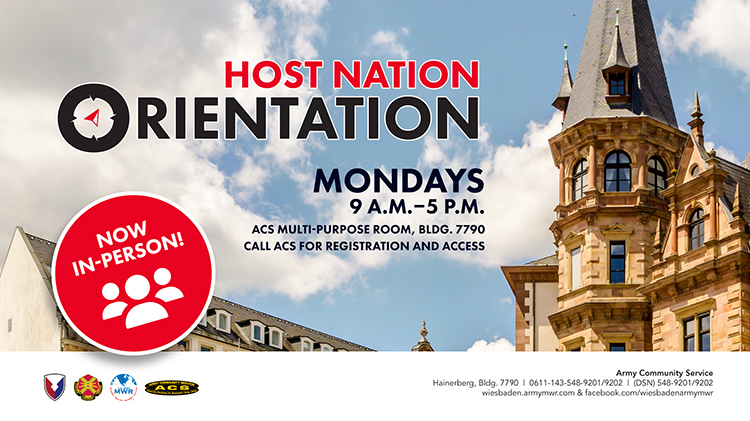- Resources
- FAQs
-
1. What type of liability insurance coverage do PO’s have to carry?
All POs are different and therefore the coverage will be different for POs based on the activities they are involved in, the amount of money handled and the amount of people who have access to funds.
Per page 10 of the PO Handbook, POs must purchase fidelity bonding from a commercial firm at their own expense. POs should bond members or employees handling significant amounts of cash for the PO. The level of fidelity bonding should be equal to the normal maximum amount of cash handled, so it is sufficient to provide full protection of assets. A copy of the fidelity bonding must be submitted to the approval authority. (AR 210-22, 3-2 Insurance). General liability insurance coverage must be adequate for protection against public liability claims, property damage claims, or other legal actions arising from PO activities. The coverage must protect from claims against PO members acting on behalf of the PO, or the operation of any equipment, apparatus, or device under the control and responsibility of the PO.
Regulation: AR 210-22, 3–2. Insurance
a. Private organizations will obtain adequate insurance as protection against public liability, claims, property damage claims, or other legal actions arising from PO activities, one or more of the PO’s members acting on its behalf, or the operation of any equipment, apparatus, or device under the control and responsibility of the PO.
b. Fidelity bonding will be purchased by an organization for members or employees handling monthly cash flow exceeding $500. (Bonding will be equal to the normal maximum amount of cash handled.)
2. What are popular insurance companies that can be used?
The below companies have been used by POs in the past, however, the federal government does not endorse any of them. If POs have additional companies they use, I will be happy to add them to the list:
AXA Versicherung AG
www.axa.de, +49 (0)221 148-52018
email: FIBA-Region-Sued@axa.de
Doll Winter Versicherungsmakler
06332-92720
doll-winter.de
email: duw@doll-winter.de
Lloyds Insurance
https://www.lloyds.com/en-de/lloyds-around-the-world/home
email: lloydseurope.info@lloyds.com, +32 (0) 2 227 39 39
email: jan.blumenthal@lloyds.com, +49 (0)69 7144 881 0
3. Can individual items (ex. sugar, eggs, etc.) purchased from the Commissary be used for fundraisers (ex. Bake sales)?
No, POs are not allowed to purchase products and items for their fundraisers from the Commissary.
4. Can POs solicit for donations?
The answer is essentially yes. POs can ask for donations as part of their fundraiser or donation drive but it still must go through the PO Coordinator for approval.
Situation 1: POs can ask other POs for donations – it happens quite frequently. If one PO needs money for kids to go on a trip and they can find another PO who can give the money but needs volunteers to help with a project, then they both win.
Situation 2: You can solicit for donations from companies outside the installation, but those companies cannot get ANY benefits within the installation. Thus, if you get money from a car dealer, they cannot bring a car or any sales or informational information onto the installation.
Situation 3: Asking for donations from AAFES: Based on AR 215-8, Army and Air Force Exchange Service Operations (5 October 2012) para 6–21 says that AAFES will not contribute funds, merchandise, or services (financial, procurement, contracting, and so forth) to any charity or other organization. This does not prohibit (1) Providing gift certificates and gift cards to military MWR programs for promotional purposes, as long as recipients of such certificates and cards are authorized patrons. (2) Transferring no-value inventory items to the garrison or installation MWR entity and fund or other installation governmental entities without charge. Collection jars or other displays for donation of money or items are not permitted in AAFES facilities. Therefore, while there's no prohibition on a private organization soliciting AAFES for goods, the regulation prohibits AAFES from donating items to them. However, if they offer you a donation, you can accept it.
Situation 4: Soliciting for donations from the Commissary: Based on DoD Instruction 1330.17 (17 June 2018), DoD Commissary Programs, says at Enclosure 6, para 8(a), (1) Pursuant to section 2485(f) of Reference (c), DeCA may donate unmarketable, unsaleable, but edible food to: (a) A nonprofit, charitable food bank exempt from federal income taxation pursuant to section 501(c)(3) of Title 26, U.S.C. (Reference (t)) and designated by the ASD(R&FM) or the Secretary of Health and Human Services to receive such donations;(b) A State or local agency authorized to receive donations from the U.S. Department of Agriculture Food and Nutrition Service Food Distribution Division;(c) A chapter or other local unit of a recognized national veterans’ organization that provides services to veterans without adequate shelter and has been designated by the Secretary of Veterans Affairs as authorized to receive such donations; or (d) A not-for-profit organization that provides care for homeless veterans and has been designated by the Secretary of Veterans Affairs as authorized to receive such donations. (2) DeCA is not authorized to perform any service, such as transportation, in connection with the donation of government-owned or vendor-owned food. Donations will take place at commissary store locations only. (3) Food that may be donated under this provision must be certified as edible by appropriate food inspection technicians supporting the donating commissary, and would otherwise be destroyed as unusable. (4) Food awaiting donation will be held by the donating commissary store, pending pick up by the entity accepting the donation. Additionally, commissaries are authorized to hold (pending pickup by the entity accepting the donation) any edible food for which a vendor has credited the commissary account. Therefore, if the Commissary offers a donation, you can accept it.
5. Can POs have a PayPal account?
POs can use PayPal to pay for goods and services or to accept payment for PO related activities, however, all receipts and invoices must be part of their audit. Any income and expenses must be included in their financial statements turned in on an annual basis.
6. Can POs be sponsored by an outside source?
See answer from Question 4, Situation #2.
7. Do scouting organizations have to use a CPA complete their annual audit if their bank account totals over $50,000 even though it is not an annual reporting requirement?
Yes. Since the Garrison Commander has made the determination that any PO with bank deposits totaling over $50,000 must have a CPA to complete their audit, the scouting organizations must also comply if they fall into this category.
Regulation: Based on AER 215-8, para 9e, Sponsored scouting councils and organizations must maintain separate accounting records for service contributions and for locally generated income. These fund records must be made available for annual audits and other service requirements.
8. What are the exceptions for scouting organizations for fundraising?
Although scouting organizations can get exceptions to the annual renewal requirement documents that must be submitted, they must follow the normal fundraising guidelines that all POs must follow.
9. If a PO does not have a bank account in Wiesbaden, do they still have to report their financials?
If a PO does any fundraising or handles any funds, they must produce copies of their financial statements and audits, no matter where their bank account(s) is/are located.
Private Organizations (POs) are independent, non-Federal entities that operate on military installations with the written approval of an authorized authority. Members can determine specific functions and expenditures within regulatory guidelines.
POs are not recognized as official U.S. government entities and do not receive the privileges of Non-Appropriated Fund activities. The Federal Government, Department of the Army, IMCOM-Europe, and USAG Wiesbaden do not bear any liability for the actions or debts of POs. Members may be personally liable under applicable host nation laws. Department of Defense personnel, when acting in their official capacities, cannot influence or compel POs to support specific activities.
Military and civilian personnel will not be assigned to POs as part of their official duties. PO members operate solely outside the scope of their official positions within the U.S. Government or its instrumentalities. POs must not duplicate or compete with any Army or Non-Appropriated Fund programs.
POs cannot be operated primarily as business ventures to secure group purchase savings or to increase the wealth of the organization or its members, except for authorized investment clubs.
Below are helpful links to assist previously established POs as well as new up-and-coming PO’s.
For any questions or concerns, feel free to reach out to the PO Coordinator, Ms. Rachel Bianculli, via email at usarmy.wiesbaden.id-europe.mbx.private-org@army.mil or by phone at CIV: 0611-143-548-9124 or DSN: 548-9124

